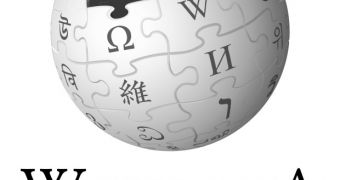Wikipedia, one of the largest and most visited sites on the web, relies exclusively on donations to survive. It does more than survive though, it actually does really well for a non-profit site. Each year, sometime in late fall, Wikipedia runs a campaign to round up donations.
This year's campaign was the most successful yet. Not only has the site made more money than ever before, it did it in record time.
Wikimedia Foundation, the organization that runs Wikipedia, got $25 million, €18.8 million in donations in just nine days. That's compared to $20 million, €15.10 million last year. But it gets better.
You've surely noticed the annoying banners in these past few years, showing either founder Jimmy Wales or Wikipedia employees and volunteers in some cases.
The banners stayed there for many weeks, if you didn't pay, and were quite annoying. This year though, the banners seemed much less intrusive and most people may not have even noticed them.
That's actually because the campaign was much shorter and much more focused. It only ran for nine days in English-speaking countries, United States, Canada, Great Britain, Australia and New Zealand.
What this means is that Wikipedia managed to raise more money in nine days from just five countries than it did last year in 46 days from the entire world. It must be doing something right.
In fact, now that it knows it's doing something right, it plans to keep on doing it, the messages and banners it used in this blitz campaign will be used in a global one coming in April, in all the countries not included in this round.
You can expect Wikipedia to raise plenty more cash in that round as well. The site takes donations all year round and makes a few millions of dollars per year even when it's not running the fundraising campaigns. Donations from companies or organizations like Google add a few more millions of dollars to the final number.

 14 DAY TRIAL //
14 DAY TRIAL //